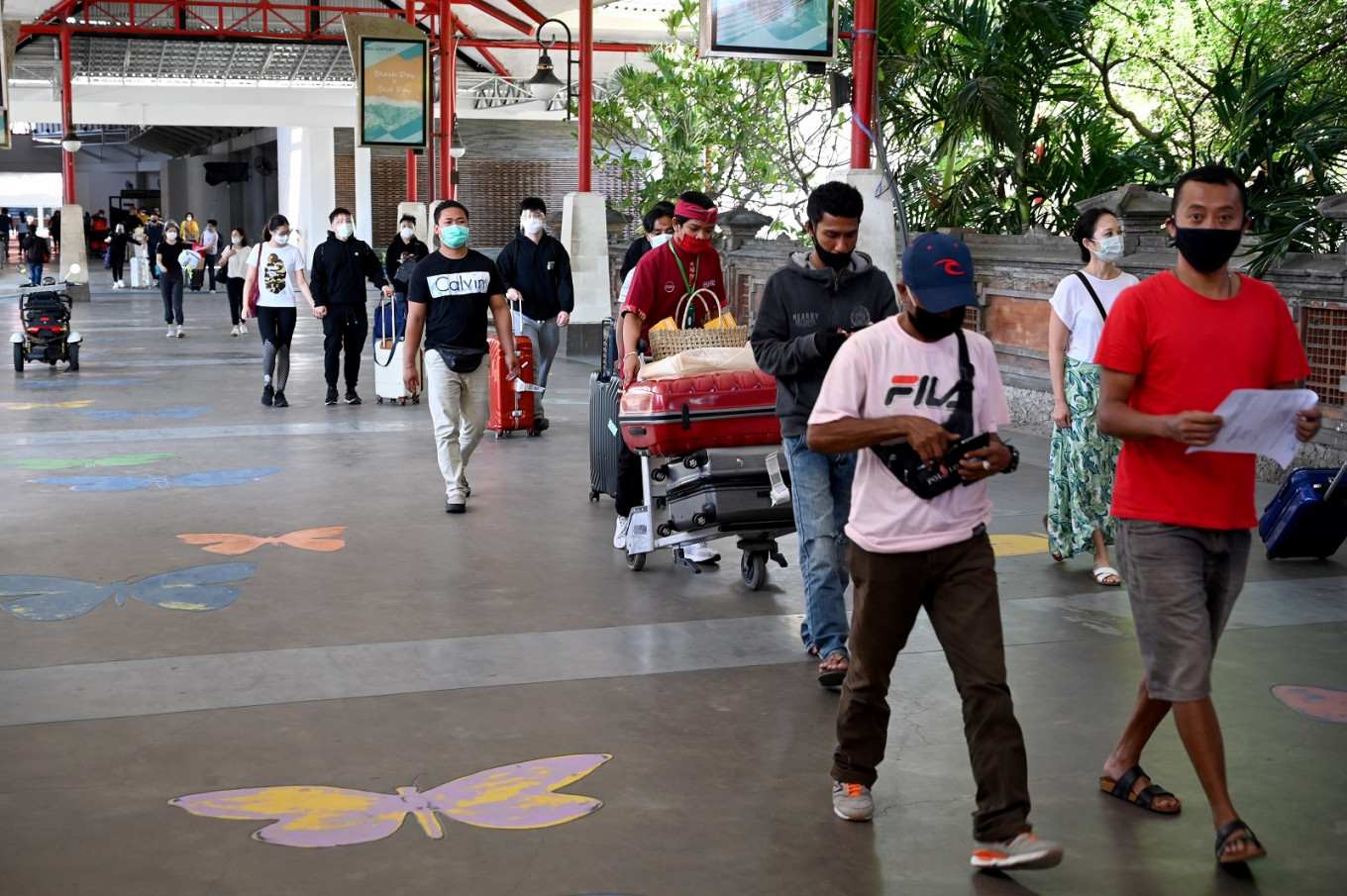Bali reopening
For the national economy, Bali’s tourism industry is key. In 2018 alone it contributed Rp 100 trillion to state revenue, according to the Tourism Ministry.
Change Size
 Passengers arrive on the first day of reopening for domestic flights after being temporarily closed due to concerns about the COVID-19 coronavirus at Ngurah Rai International airport, in Tuban, near Denpasar, on Indonesia's resort island of Bali on July 31, 2020.
(AFP/Sonny Tumbelaka)
Passengers arrive on the first day of reopening for domestic flights after being temporarily closed due to concerns about the COVID-19 coronavirus at Ngurah Rai International airport, in Tuban, near Denpasar, on Indonesia's resort island of Bali on July 31, 2020.
(AFP/Sonny Tumbelaka)
A
Bali tourist guide claims her income has plunged to zero for the last few months as the business that used to earn her between Rp 10 million (US$683.50) and Rp 15 million per month has come to a complete halt due to the COVID-19 pandemic. The island’s reopening for domestic tourists starting July 31 and for international tourists on Sept. 11 understandably rekindles her hope and that of Bali as well as the country for recovery.
For the national economy, Bali’s tourism industry is key. In 2018 alone it contributed Rp 100 trillion to state revenue, according to the Tourism Ministry. That year, the island saw 9.7 million domestic tourist arrivals, or 61.6 percent of the total number of visitors.
Bali has lost an estimated Rp 48.5 trillion between March and July from the industry, which is why the reopening is much-awaited. Local officials said the decision followed a thorough consideration, including the positive development in the way the province dealt with the pandemic. It has recorded 3,360 infections with 48 deaths as of July 31, with no red zone.
There have been pros and cons as to whether the economy reopening is premature, given the fact that the number of infections is on the rise. As of Sunday, more than 111,000 people have been infected, over 5,230 of them have died, and nearly 69,000 have recovered.
A recent study by the Centre for Strategic and International Studies (CSIS) revealed that the reopening of a region comes with a spike in COVID-19 infections, although in some areas that is not the case.
The Jakarta-based think tank found that, based on compiled data for July 25, the provinces of Riau Islands, West Sumatra, Banten, West Kalimantan, North Kalimantan, East Nusa Tenggara, Lampung, Bangka Belitung Islands and Jambi recorded a decline in the number of active cases amid signs of improving economic activities.
Jakarta, which has been an epicenter of virus transmission from the beginning of the pandemic, has proven the correlation between economic reopening and a surge in infections. Governor Anies Baswedan said that, since the capital transitioned away from large-scale social restrictions on June 4, the city’s positivity rate had doubled from below 5 to 10.5.
Last week, the COVID-19 task force discovered dozens of new clusters in many buildings belonging to the central government, city administration and state-owned enterprises, as they were gradually resuming office-based work.
Jakarta’s transition is a lesson for other regions, as is Bali’s reopening. The island can set a model on requirements a region has to meet and phases to go through before fully reopening its economy. More than that, Bali’s case will be a litmus test for Indonesia’s bid to lure back foreign tourists at a time when ASEAN countries are preparing to reopen their borders to revive regional tourism.
COVID-19 has not only battered the health system of countries but also resulted in economic pandemonium, with some entering a recession. Only with the right strategy and implementation can Indonesia overcome the double whammy.








